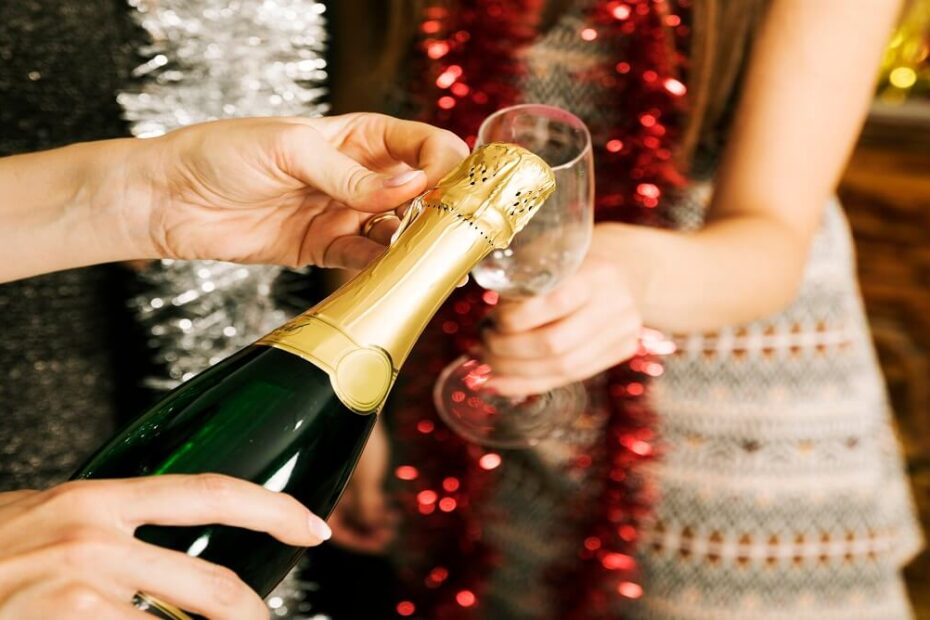With its effervescent charm and celebratory appeal, champagne has captivated connoisseurs and casual drinkers alike, resonating with moments of joy, success, and romance. Nestled among the sparkling spectrum, vintage champagne emerges as a jewel—a vinous time capsule capturing the essence of a single, exceptional year. Born from a harmonious dance of nature’s variables, each vintage tells a distinct story of terroir, climate, and human intervention. When one chooses to buy champagne, one partakes in a temporal journey imbued with the intricacies of its birth, making this drink not merely a beverage but a sensorial chronicle of history, art, and passion. Its legacy and mystique, etched in each bubble, have rendered it an unparalleled experience in the vast tapestry of wines.
Understanding Vintage Champagne: A Glimpse into the Past
The Distinctive Essence of Vintage
This drink is not just a product; it’s a snapshot of a particular year’s grape harvest. Unlike non-vintage blends, which combine wines from multiple years, the drink is made from grapes harvested in a single exceptional year. This exclusivity gives each bottle a distinct character that reflects that year’s specific weather conditions and grape quality.
A Reflection of Terroir
Terroir, the combination of soil, climate, and geography influencing grape growth, is pivotal in crafting vintage champagne. Every vintage tells a story of its terroir, offering wine connoisseurs a chance to connect with a specific time and place through their senses.
The Process of Crafting Vintage Champagne
Meticulous Grape Selection
Crafting this drink is a journey that commences with an almost reverential grape selection. Vintners scour their vineyards, searching for bunches that exhibit a harmonious balance, typically with unparalleled ripeness and vibrant acidity. These grapes are nature’s marvels, often kissed by the sun and caressed by the perfect breeze.
Handpicked with precision, they are the bedrock of this extraordinary elixir. This stringent curation ensures that the wine doesn’t merely reflect its birth year but sings of its essence, narrating tales of sunshine, rainfall, and the terroir’s whispered secrets.
Extended Aging and Autolysis
After the initial fermentation, the drink undergoes a longer aging process than its non-vintage counterparts. This extended aging allows the wine to develop more complex flavors and aromas. During this time, autolysis occurs, where yeast cells from the second fermentation break down and contribute to the wine’s creamy texture.
The Art of Tasting Vintage Champagne
Unveiling Layers of Aromas
Opening a bottle is like uncorking a time capsule. As the cork pops, a symphony of aromas is released. With notes of honey, toasted bread, and vibrant fruits, the bouquet invites the taster to embark on a sensory adventure.
The Dance of Bubbles
The effervescence in this drink is more than just a visual spectacle; it’s a tactile experience. The delicate and persistent bubbles carry flavors across the palate, creating a harmonious dance of taste and texture that lingers long after each sip.
The Allure of Collecting Vintage Champagne
Investment in Pleasure
Collecting vintage champagne is an investment in financial terms and a pleasure. With proper storage, these bottles can age gracefully, transforming into liquid treasures that tell stories of the past.
Moments Frozen in Time
Each vintage bottle holds the essence of a specific year. Opening a bottle becomes an opportunity to relive moments from the past, whether it’s a special occasion or simply a glimpse into the history of winemaking.
Conclusion
Vintage champagne is a testament to the artistry and dedication of winemakers. When one chooses to buy champagne, it allows them to savor time in a glass, taste the years gone by, and celebrate life’s milestones with a touch of elegance. So, whether you’re a seasoned oenophile or a curious beginner, savor the allure that transcends time.
